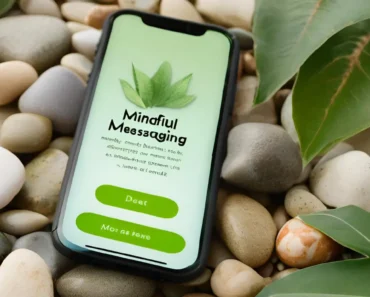Feeling overwhelmed? You’re not alone. Learning how to reduce daily tension is essential for maintaining balance in today’s fast-paced world. From deep breathing exercises to mindfulness practices, these 20 methods will help you reclaim calm and improve your overall well-being. Let’s dive in!
Why Is It Important to Reduce Daily Tension?
Tension can wreak havoc on both your physical and mental health. Chronic stress weakens your immune system, disrupts sleep, and increases the risk of anxiety and depression. By focusing on ways to reduce daily tension, you’re investing in your long-term happiness and productivity. Think of it as giving your mind and body a much-needed break.
Top 20 Methods to Reduce Daily Tension
1. Practice Deep Breathing Exercises
Deep breathing activates your parasympathetic nervous system, promoting relaxation. Try inhaling deeply for four counts, holding for four, and exhaling for six. This simple technique helps lower cortisol levels and brings instant relief. For more advanced techniques, check out this guide on mindful breathing.
Tip: Make It a Habit
Schedule short breathing breaks throughout your day. Even five minutes can make a big difference. Imagine filling up a cup of tea with warmth and calm—it’s all about consistency!
2. Get Moving with Physical Activity
Exercise releases endorphins, which naturally boost your mood and energy levels. Whether it’s yoga, running, or dancing, moving your body is one of the best ways to reduce daily tension. Need inspiration? Explore fitness routines designed for stress relief.
3. Prioritize Quality Sleep
Without enough rest, your ability to handle stress diminishes significantly. Aim for seven to nine hours of quality sleep each night. Establish a bedtime routine, avoid screens before sleeping, and create a cozy environment. Your future self will thank you for prioritizing this essential habit.
4. Journal Your Thoughts
Writing down your thoughts and feelings can be incredibly therapeutic. Journaling allows you to process emotions and identify patterns in your behavior. If something’s bothering you, jot it down instead of letting it swirl endlessly in your head. For more tips, read this article on journaling for stress management.
Relaxation Techniques to Incorporate Into Your Routine
5. Meditate Regularly
Meditation has been proven to lower cortisol levels and improve focus. Spend just ten minutes each day focusing on your breath or repeating a mantra. Over time, you’ll notice improved clarity and reduced tension. There are tons of apps available to guide beginners through meditation practices.
6. Try Progressive Muscle Relaxation
This method involves tensing and then relaxing different muscle groups in your body. Start from your toes and work your way up to your forehead. Not only does it release physical tension, but it also helps quiet your mind. Picture it as giving yourself a full-body massage without leaving your chair!
7. Listen to Soothing Music
Music has a unique way of influencing our emotions. Create a playlist filled with calming tunes or nature sounds. Need some ideas? Explore classical compositions or ambient tracks designed specifically for relaxation. Who knew Bach could double as a stress reliever?
Lifestyle Changes That Promote Stress Reduction
8. Eat a Balanced Diet
Your diet plays a crucial role in how you manage stress. Fuel your body with nutrient-rich foods like fruits, vegetables, lean proteins, and whole grains. Avoid excessive caffeine and sugar, as they can exacerbate feelings of anxiety. Treat your body like a temple—what you put inside matters!
9. Limit Screen Time
We live in a digital age where constant notifications and social media updates bombard us constantly. Set boundaries by turning off unnecessary alerts and scheduling tech-free periods. Give your eyes and brain a break—they deserve it!
Also Read: Tips 5 Ways to Boost Your Mood Today
10. Connect with Nature
Spending time outdoors is one of the best ways to reduce daily tension. Go for a hike, sit by the beach, or simply enjoy a picnic in the park. Nature has a magical way of grounding us and reminding us of life’s beauty.
Building Stronger Relationships to Combat Stress
11. Lean on Friends and Family
Social support is vital for mental health. Reach out to loved ones when you need someone to talk to. Sometimes, sharing your burdens lightens the load considerably. Remember, no one expects you to face life’s challenges alone.
12. Join a Community Group
Whether it’s a book club, fitness class, or volunteer organization, being part of a community fosters connection and belonging. Surrounding yourself with positive influences can do wonders for your outlook on life.
Creative Ways to Relieve Stress
13. Engage in Artistic Expression
Painting, drawing, or crafting provides an outlet for creativity and self-expression. Even if you’re not Picasso, the act of creating something meaningful can bring immense satisfaction. Think of it as painting over the canvas of stress with colors of joy!
14. Cook or Bake Something New
Cooking is both functional and meditative. Experimenting with recipes keeps your mind engaged while producing delicious results. Plus, who doesn’t love eating their hard work?
Additional Tips to Enhance Your Well-Being
15. Laugh Often
Laughter truly is the best medicine. Watch a comedy show, read funny memes, or spend time with people who make you smile. A good laugh instantly lifts your spirits and reduces stress hormones.
16. Practice Gratitude
Shifting your focus to what you appreciate can transform your mindset. Keep a gratitude journal or share three things you’re thankful for each day. It’s amazing how small shifts in perspective can lead to big changes.
17. Say No Without Guilt
Overcommitting yourself leads to unnecessary pressure. Learn to set boundaries and politely decline tasks that drain your energy. Your needs matter too!
18. Take Breaks Throughout the Day
Short breaks recharge your batteries and enhance productivity. Step away from your desk, stretch, or grab a snack. Treat these pauses as mini vacations for your brain.
19. Seek Professional Help if Needed
If stress feels overwhelming, consider speaking with a therapist or counselor. They offer valuable insights and strategies tailored to your situation. There’s absolutely no shame in asking for help—it shows strength, not weakness.
20. Practice Mindfulness
Mindfulness encourages living in the present moment rather than dwelling on past regrets or future worries. Focus on sensory experiences, such as the taste of your coffee or the texture of fabric. Living fully in the now helps anchor you during stressful times.
Final Thoughts
Incorporating these methods into your routine won’t eliminate stress entirely—but they’ll equip you with tools to navigate it better. Life throws curveballs, but armed with knowledge and practice, you can reduce daily tension and thrive despite challenges. Start small, experiment with different techniques, and find what works best for you. After all, peace begins within.
Frequently Asked Questions
Q1: How long does it take to see results from reducing daily tension?
Results vary depending on the method and consistency. Some techniques, like deep breathing, provide immediate relief, while others, like mindfulness, require regular practice to show lasting effects.
Q2: Can I combine multiple methods for better results?
Absolutely! Combining methods amplifies their benefits. For instance, exercising followed by meditation creates a powerful synergy for relaxation.
Q3: What if I don’t have time for all these activities?
Prioritize what fits your schedule. Even five minutes of deep breathing or journaling makes a difference. Consistency trumps duration every time.
Q4: Are there any supplements that help reduce stress?
Certain supplements, like magnesium and omega-3 fatty acids, may support stress reduction. Consult a healthcare professional before trying anything new.
Q5: Why do I still feel tense after trying these methods?
Persistent tension might indicate underlying issues requiring professional attention. Reevaluate your approach and seek guidance if needed.






Your article helped me a lot, is there any more related content? Thanks! https://www.binance.info/register?ref=IXBIAFVY